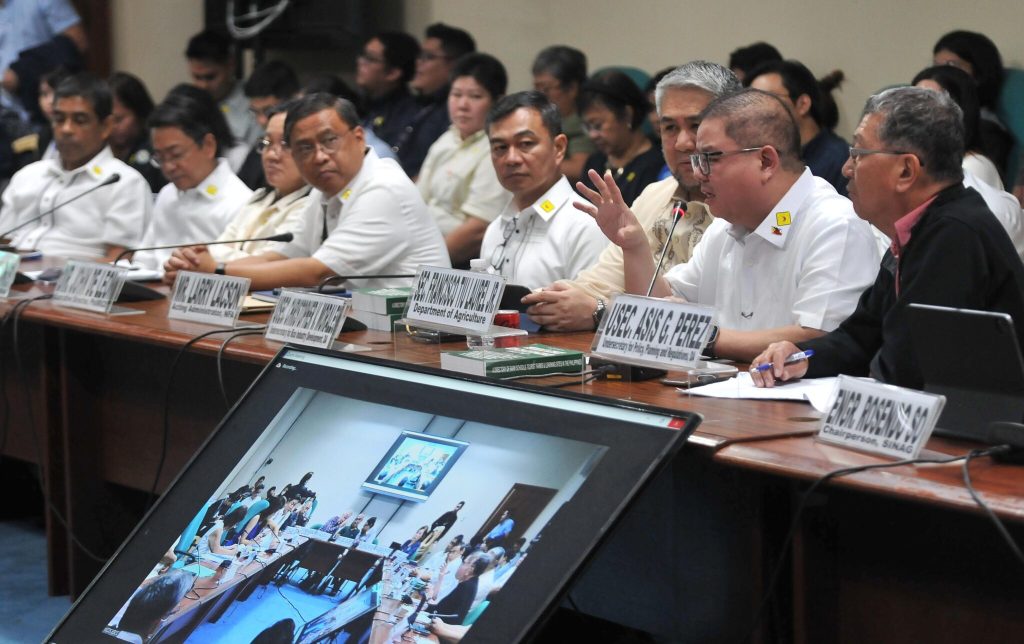
Agriculture Secretary Francisco P. Tiu Laurel Jr. urged the legislators to support the extension of the Rice Competitiveness Enhancement Fund (RCEF).
RCEF, which has provided additional funding for government initiatives to improve the livelihoods of Filipino farmers, is a component of the Rice Tariffication Law that is currently being revisited for possible amendments.that has provided additional funding for government initiatives to improve the livelihoods of Filipino farmers.
In his report to the Congressional Oversight Committee on Agricultural and Fisheries Modernization led by Senator Cynthia Villar on May 14, the agri chief said the RCEF, otherwise known as Rice Fund that would expire next year, is a “dynamic economic strategy” that has allowed the government to leverage significant tariff from imported rice to enhance farmers’ productivity and incomes.
The Rice Fund “has provided a substantial revenue stream for the government to finance essential development projects aimed at improving the competitiveness of the rice sector in the Philippines,” said Sec. Tiu Laurel, who sought the extension of RCEF until 2030 and changes to the fund’s allocation to improve efficiency and optimize its impact.
The Rice Fund allocated P10 billion a year for the distribution of farm machineries and seeds, among others, with excess tariff collection distributed to farmers as financial assistance to minimize the impact.
Sec. Tiu Laurel said over a million Filipino rice farmers have benefited from the Rice Fund since its implementation in 2019.
“The RTL has leveraged tariff revenues to fund critical initiatives that have brought transformative changes to our agricultural landscape. Notably, the provision of high-quality seeds and modern machinery through the RCEF has led to a remarkable increase in rice yields and a reduction in production costs,” the agri chief said.
“Specifically, our data shows that from 2019 to 2023, palay production across the 57 RCEF provinces increased by approximately 7 percent,” he added.
Aside from extending the life of the Rice Fund, the Department of Agriculture has also proposed changes to the RTL that would allow the National Food Authority temporary powers to intervene in the rice market as needed to correct significant price disparities and perform price stabilization function in times of food security emergencies and periods of sudden price hikes and sustained high prices of rice, creation of an office that would coordinate various rice programs of the government, and strengthening regulatory functions specifically targetting anti-competitive practices such as rice hoarding and price manipulation to protect consumers and ensure market fairness.
These strategic enhancements aim to bolster the resilience and sustainability of the Philippine rice industry, securing long-term food security and economic stability for the nation. ###

